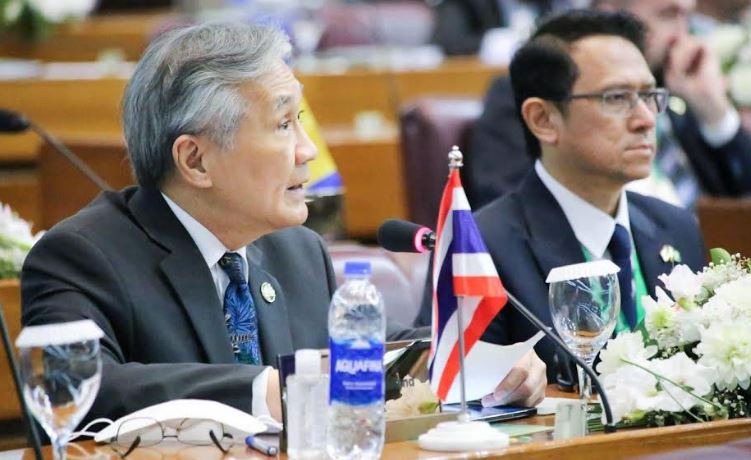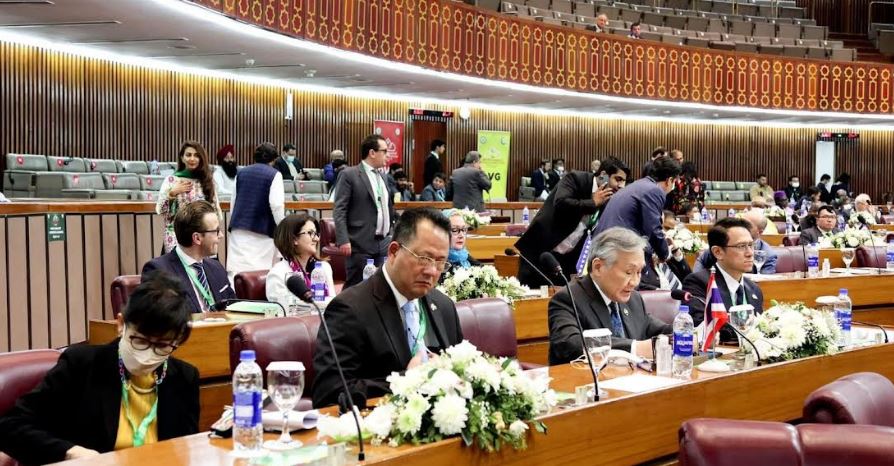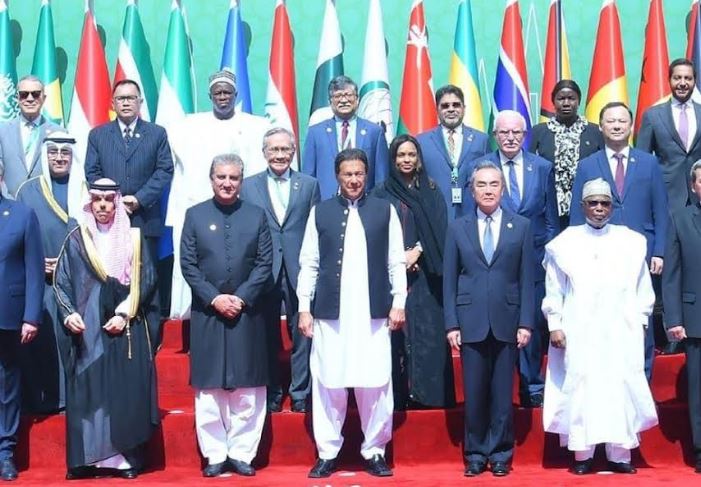Thanawat Sirikul
In the past two years, the COVID-19 pandemic has wreaked havoc on people’s health and the economy. It has also severely curtailed the promotion and furtherance of international cooperation, which is arguably one of the very tools needed to drive and revive Thailand’s economic growth and development. The reopening of Thailand, the resumption of people-to-people contact and the convening of important meetings under key frameworks of cooperation all represent golden opportunities that must not be missed. Instead, they must be taken full advantage of, in order to expand the type of cooperation that is strategically targeted towards assisting post-COVID recovery of the Thai economy.
It should come as no surprise then, that Don Pramudwinai, Deputy Prime Minister and Minister of Foreign Affairs, travelled to Islamabad, the Islamic Republic of Pakistan, to attend the 48th Council of Foreign Ministers of the Organization of Islamic Cooperation (OIC-CFM 48) on 22-23 March 2022. Currently, the OIC comprises 57 member countries whose combined population stands at approximately 1.5 billion people worldwide. It is, therefore, irrefutably the premier intergovernmental organization of the Muslim world. It represents an important platform for Thailand to share her efforts on promoting multiculturalism and pluralism in Thai society and the Southern Border Provinces through policies that respond to the needs of Thai Muslim communities in the country. The OIC also serves as a forum for the exchange of knowledge and information. Most importantly, it is a gateway through which cooperation between Thailand and the Muslim world can be further enhanced.

With the presence of so many of his esteemed counterparts during the said meeting, the Deputy Prime Minister was able to hold bilateral meetings on issues of mutual interest with key member countries of the OIC such as Saudi Arabia, whose bilateral relations with OIC have recently been normalized, Bahrain, Egypt, Turkey and the OIC Secretary-General, all with a view to promoting bilateral cooperation and expanding economic opportunities for Thailand.
A case in point is that currently the Office of the Central Islamic Council of Thailand, as the National Halal Accreditation agency of Thailand, and the Halal Standard Institute of Thailand, have joined the Standards and Metrology Institute for the Islamic Countries (SIMIIC) as observers. The latter plays a crucial role in formulating and certifying global halal standards and so the implementation and certification of these standards will increase the opportunity for Thai halal products to be exported to Muslim countries and Muslim communities the world over. This represents an enormous market with high potential for growth. Engaging with the OIC and strengthening relations with OIC member countries therefore, is not only beneficial but critical for Thailand, if we are to realize the government’s vision for Thailand to be a leading country in the development, production and export of agricultural products and food products that are internationally recognized at the global level through Thai Halal standards and the use of religious principles, science and technology and innovation, by 2027.

Other areas of cooperation, beyond the expansion of economic opportunities, will also have impact, such as cooperation in the area of human capital investment. The Islamic Development Bank (IDB), under the aegis of the OIC, offers scholarships to Thai Muslim communities in Thailand. Similarly, the Thailand International Cooperation Agency (TICA) of the Ministry of Foreign Affairs of Thailand, provides training courses in fields which Thailand has expertise, for OIC member countries under the framework of multilateral and bilateral cooperation. TICA offers training courses, for example, on sustainable development and public health to various countries in Asia and Africa. Thailand has also continued to provide assistance to Muslim minorities and communities under the framework of the United Nations. In addition, Thailand has access to the Islamic Scientific, Educational and Cultural Organization (ISESCO) as an observer, to further cooperation on capacity building programmes.
The Deputy Prime Minister’s trip to the 48th Council of Foreign Ministers of the OIC achieved two valuable goals. It promoted and strengthened the role of Thailand in a key international forum and it deepened market links with Islamic countries, both undeniably needed in the next phase for Thailand’s post-COVID economic recovery. The trip also reinforced the understanding that the OIC is an important gateway for Thailand to foster strong and meaningful people-to-people contact, not only for Thailand’s Muslim communities with other Muslim communities all over the world, but for each and every one of us to benefit from and appreciate.
The writer is the Deputy Director-General, Department of Information
Ministry of Foreign Affairs

















